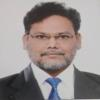Advanced Research on Sustainable Smart City
A special issue of Sustainability (ISSN 2071-1050). This special issue belongs to the section "Sustainable Urban and Rural Development".
Deadline for manuscript submissions: closed (14 November 2023) | Viewed by 2612
Special Issue Editors
Interests: capacitive sensors; impedance sensors; surface acoustic wave sensors; fractional order constant phase sensors; sensors array for e-nose; interfacing circuits for the sensors; signal conditioning circuits (analog/digital); measurements of physical and chemical parameters; health monitoring for smart grids (Gas Insulated Switch Gear and Protection Transformer); automatic dispensing system; structural health monitoring; food quality; smart agriculture
Special Issues, Collections and Topics in MDPI journals
Interests: sensors; microcontroller-based signal conditioning circuits; health monitoring of electrical assets in smart grids; the Internet of things (IoT); wireless network; environmental monitoring
Special Issue Information
Dear Colleagues,
"Smart Cities" provide new ideas to enhance urban residents' quality of life sustainably and equitably. By 2050, 85% of the world's population will be urban. With the help of advanced sensing, information and communication techniques, a city becomes smarter by optimizing resources and services. At the core of a smart city lies the sensors and actuators embedded in the smart devices that sense the environment to facilitate effective decision-making. The sensors are used to obtain information in real-time related to energy, health, transportation, security, water, waste management, etc. A limited budget due to the global economic slowdown, resource constraints, cyber security, and continuous advancement of IC and software technologies are some of the few challenges that affect the implementation of smart cities. The aim of this Special Issue is to report on the design and development of smart sensors, a universal interface platform, and the IoT framework, extending it to next-generation networks for monitoring smart city parameters This endeavor includes building innovative sensors, for monitoring various parameters related to advanced sustainable smart city, addressing some of the cyber security issues and making the data accessible through cloud computing.
The topics of interest include, but are not limited to, the following:
- Artificial intelligence;
- Green sensing;
- Internet of Things;
- Mobile networks (4G, 5G);
- Advanced sensing technologies;
- Sensor networks and energy harvesting;
- Renewable energy resources;
- PID and fuzzy controller;
- Smart technologies;
- Smart cities;
- Cloud computing and open-source technologies;
- Smart education;
- Smart urban mobility;
- Cyber security;
- Wireless sensor network (WSN);
- LoRaWAN;
- Smart sensors;
- Smart meters;
- Cyber privacy;
- 3D ray launching;
- Smart measurement techniques;
- Modeling and simulation;
- Environment;
- Food quality healthcare and other fields;
- Visualization.
Prof. Dr. Tarikul Islam
Dr. Anwar Ulla Khan
Dr. Md. Rahat Mahboob
Guest Editors
Manuscript Submission Information
Manuscripts should be submitted online at www.mdpi.com by registering and logging in to this website. Once you are registered, click here to go to the submission form. Manuscripts can be submitted until the deadline. All submissions that pass pre-check are peer-reviewed. Accepted papers will be published continuously in the journal (as soon as accepted) and will be listed together on the special issue website. Research articles, review articles as well as short communications are invited. For planned papers, a title and short abstract (about 100 words) can be sent to the Editorial Office for announcement on this website.
Submitted manuscripts should not have been published previously, nor be under consideration for publication elsewhere (except conference proceedings papers). All manuscripts are thoroughly refereed through a single-blind peer-review process. A guide for authors and other relevant information for submission of manuscripts is available on the Instructions for Authors page. Sustainability is an international peer-reviewed open access semimonthly journal published by MDPI.
Please visit the Instructions for Authors page before submitting a manuscript. The Article Processing Charge (APC) for publication in this open access journal is 2400 CHF (Swiss Francs). Submitted papers should be well formatted and use good English. Authors may use MDPI's English editing service prior to publication or during author revisions.
Keywords
- smart city
- green energy
- advancement of sensors and smart sensors
- interfacing circuit
- Internet of things
- networking of sensors
- artificial intelligence
- cybersecurity







